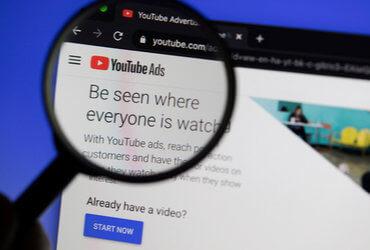
![]() Insights
Insights
Display & Video 360 (DV360) is Google’s advanced programmatic management tool. Previously DoubleClick Bid Manager, it has now been fully upgraded as part of the Google Marketing Platform.
As part of the upgrade, the platform benefits from advanced automation and bid strategies that use machine learning to improve campaign performance. DV360’s automated bid strategies automatically adjust bids based on the likelihood that an impression will perform well; if historical campaign data suggests that a particular impression will result in a purchase or click, the system will put in a higher bid.
The algorithm Google uses in their automated bid strategies looks at over 40 factors when optimising bids. These signals include which audience the user is part of, the creative that’s being served, and the tactic of your line item, for example whether you’re prospecting or remarketing.
DV360’s automated bid strategies can be grouped into two objectives: maximise performance and maximise brand types (making four overall). The strategy you should choose depends on your campaign objectives, as well as the amount of data you have already collected.
If the goal of your campaign is to get clicks or conversions, you’ll benefit from using a performance-based bid strategy. There are two strategies that fall under this goal: maximise conversions/clicks, while prioritising a target CPA/CPC.
This is the best bidding strategy to opt for if you want to spend your full budget and get the best possible performance; it’s also the best option if you have a limited amount of campaign data. If your goal is to get more clicks for your budget, maximize the conversions/clicks, while prioritising spending the full budget will help you to get the highest number of conversions.
This type of bidding strategy prioritises reaching or beating a specific performance goal, which means it is possible that your budget will not be fully spent. If you have a target CPC or CPA you want to reach, this is the best strategy to choose as long as you have already collected a significant amount of campaign data. If you have limited data, it’s best to use the maximise conversions/clicks strategy first to allow enough historical data (100 conversions within the insertion order (IO) in total, or 100,000 impressions) to be collected to allow the algorithm to make ‘informed’ decisions.
Rather than optimising for clicks or conversions, bidding strategies in this group are aimed at getting your brand in front of a bigger audience. The two bid strategy types are: optimise for viewable CPM bid, and maximise quality video impressions.
If you select this strategy, DV360 will change your bid based on the probability that an impression will be viewable; this makes it an ideal strategy if your main goal is brand awareness as it gets your ad in front of as many people as possible. This strategy can be used on new campaigns with limited data.
This strategy allows you to optimise for quality video impressions, while spending the full budget. You can select what you define to be a quality impression out of three options:
Completed in-view and audible is ideal if your focus is on ensuring your video ads are watched to completion, as the system will prioritise impressions where the video is visible at completion and the audio is audible.
Selecting viewable for at least ten seconds will mean the platform optimises for impressions where it’s more likely that your video will be shown for ten seconds or more, while selecting viewable will focus on viewability (at least 50% of the ad is visible while the video is playing, for at least two seconds).
In 2020 DV360 launched custom bidding, an automated strategy where advertisers can write a Python script to define how much an impression is worth. This script is then used to build an algorithm which can predict the value of each new impression and use this value to adjust bids.
Custom bidding allows advertisers to optimise campaigns to non-standard metrics such as time on screen and Floodlight activities.
If you have a particular CPM you can’t exceed for your campaign, you should use a fixed bid instead of any automated bid strategies. However, it’s worth considering using a bid strategy in combination with the option not to exceed a certain average CPM.

Automated bid strategies are data-driven, so the more data the system collects from starting a bid strategy, the better it will be at optimising your campaigns. It’s unlikely that there will be an immediate uplift in performance; best practice would be to allow two weeks for the algorithm to stabilise, and four weeks to assess the performance.
You can set your automated bid strategy at insertion order level, which allows the system to automatically adjust bids and shift budget to better-performing line items. It means machine learning will improve your bids and performance across all line items within your insertion order, improving your overall performance rather than only looking at each line item separately. If you have spend targets for each line item, keeping the bid strategy at line item level will be your best option.

Keen to learn how DV360 can improve programmatic performance?Contact our experts to find out

![]() Insights
Insights

![]() Insights
Insights

![]() Insights
Insights